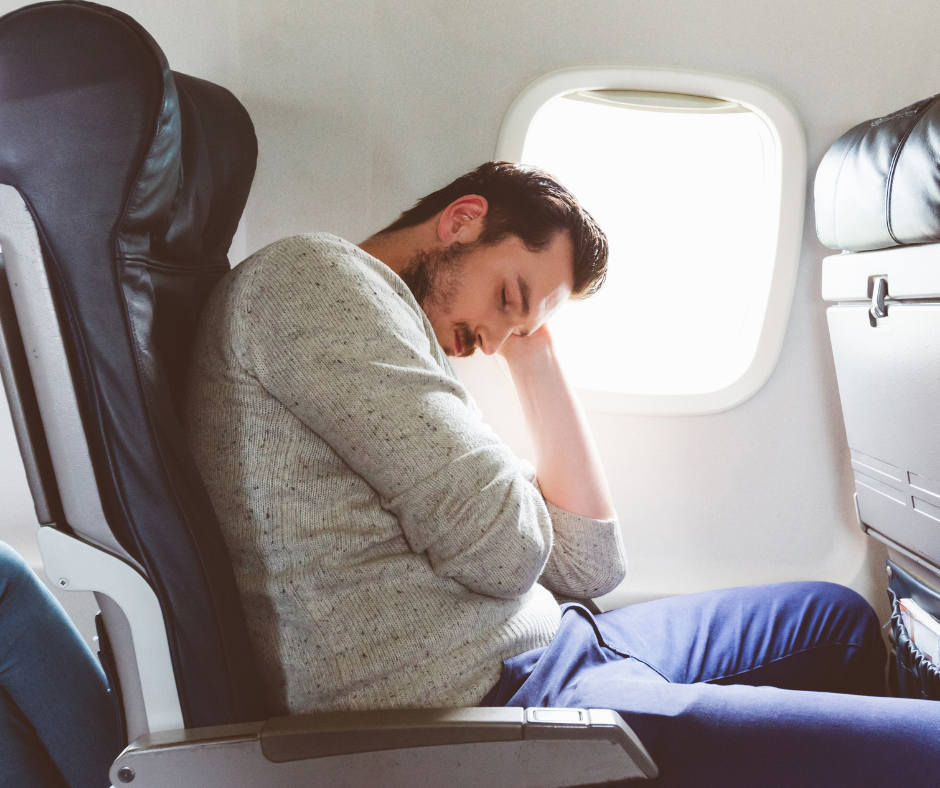If you’re anything like us, you’d never say no to a weekend getaway or faraway destination. The advent of air travel has afforded us the luxury of condensing a weeks-long journey into mere hours, but that expedient travel comes at a cost.
Money aside, the true cost of air travel comes in the form of interrupted sleep, or jet lag—and no one is immune. Even though you can’t avoid it, you can manage it. So, before you jet off to your next destination, let’s take a look at how to enjoy your trip while getting the sleep you need.
Understanding jet lag
By properly understanding jet lag, you can learn to mitigate its effects. You probably won’t experience jet lag unless you’re crossing more than three time zones—good news for most Canadians. So, unless you’re living on either coast and have to make cross-country trips, you won’t have to worry much.
However, the more time zones you cross, the more likely your sleep is to be interrupted. Sleep research has suggested that to fully acclimate to your new time zone, you’ll need one full day for each time zone crossed. So, if you’re flying from Canada to Europe or Asia, expect at least a week to reset your schedule, although the symptoms of jet lag likely won’t last that long for most people.
Side effects of jet lag might include difficulties falling asleep at night, or trouble staying awake during the day. This can make you feel drowsy, fatigued, or even nauseous until your body has a chance to readjust. We can all agree that’s not a fun way to spend a trip! You’ll want some methods to manage that jet lag so you can get on with your visit or sightseeing—fatigue free!
Managing your jet lag
There are both natural and medicinal ways to manage jet lag in anticipation of an international trip. You have a number of options, such as strategically planning your sleep schedule or using melatonin supplements.
Melatonin is a natural hormone that your body releases, and it helps regulate your cycle of sleeping and waking. Melatonin levels typically rise in the evening, bringing on drowsiness, and stay elevated throughout the night until morning. As a result, melatonin supplements have shown promising results in helping to bridge the time difference gap when traveling.
For those studying the effects of melatonin and travel, a few recommendations are available. It may be beneficial to take melatonin after dark on the day you travel, as well as for the next few evenings after arriving. Additionally, taking melatonin in the evening a few days before you fly eastwards may help curb the effects of jet lag.
If you’re looking for other solutions, there are a few sleep strategies you can employ to minimize your jet lag. Starting your trip well-rested is important—don’t stay up all night packing! Staying properly hydrated is also known to help. If you’re flying east, consider going to bed an hour early each night a few days before your trip. If you’re heading west, go to bed an hour later each night.
When you arrive, it’s important to try and adjust to your new time zone as quickly as you can. That means delaying sleep if you arrive at your destination in the morning or early afternoon. Setting your watch to the new time zone when you get on the plane—try to sleep if it’s nighttime where you’re going, or stay up if it’s day. Light exposure will help you reset your system upon arrival too, so if you’re tired with a long day to go before bed, get some sunlight!
These are just a few methods you can use to help with jet lag. Some have been studied less than others, so you may need to experiment over multiple trips to find out which strategies work best for you. If you use them to your advantage, you’ll be able to enjoy a happier, well-rested trip abroad. Bon voyage!
Not travelling and still having trouble sleeping? Book a complimentary sleep consultation to find out how we can help you sleep better.
We wrote this post referencing information from HealthLinkBC. You can see the full article here.






